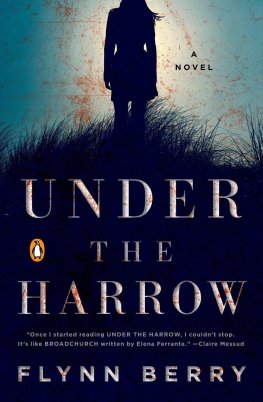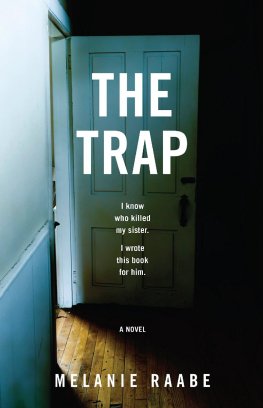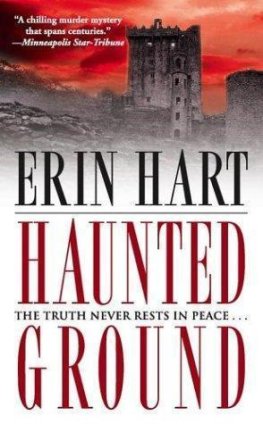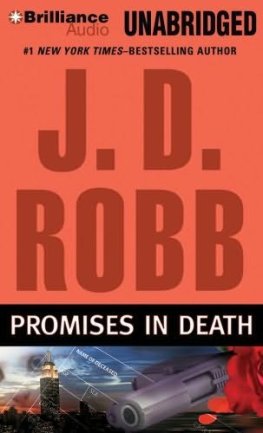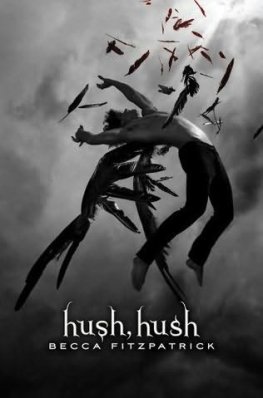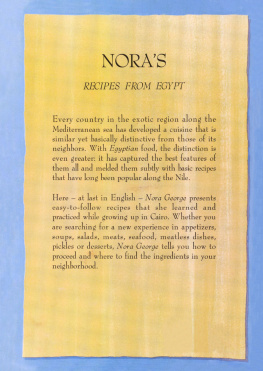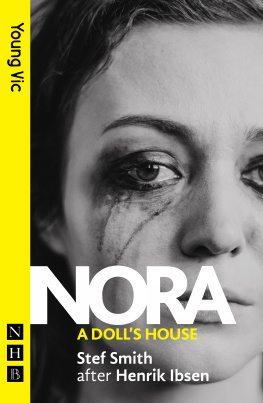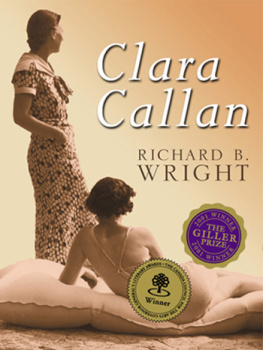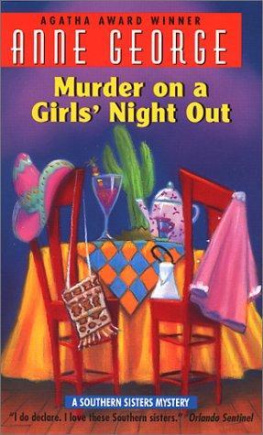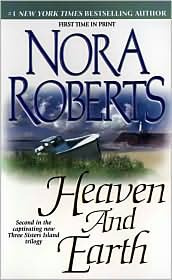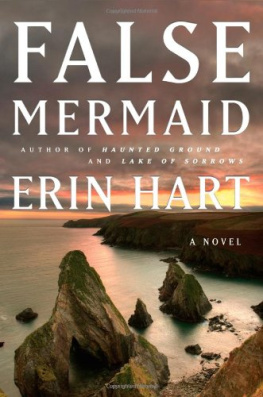Flynn Berry
Under the Harrow
Come, what do we gain by evasions?
We are under the harrow and cant escape.
C. S. Lewis, A Grief Observed
A WOMAN IS MISSING in the East Riding. She vanished from Hedon, near where we grew up. When Rachel learns of the disappearance, she will think its him.
The hanging sign for the Surprise, a painting of a clipper ship on a green sea, creaks in the wind. The pub stands on a quiet road in Chelsea. After finishing the job on Phene Street, I came for lunch and a glass of white wine. I work as an assistant to a landscaper. Her specialty is in meadows. They look like they havent been landscaped at all.
On-screen, a reporter moves through the park where the woman was last seen. Police and dogs fan out across the hills behind the town. I could tell Rachel about her tonight, though it would ruin our visit. It might not have anything to do with what happened to her. The woman might not have even come to harm.
The builders at the house across the road have finished eating, the white paper bags balled at their feet, and are leaning back against the steps in the cold sunshine. I should have already left for the train to Oxford, but I wait at the bar in my coat and scarf while a detective from the station in Hull asks the public for any information about the disappearance.
When the broadcast moves to the storm in the north, I leave under the hanging sign and turn on the next corner toward Royal Hospital Road. I walk past the trimmed squares of Burton Court. Past the estate agents. Sunny homes in Chelsea and Kensington. I still live in a tower block in Kilburn. The stairwell forever smelling of fresh paint, seagulls diving at the balconies. I dont have a garden, obviously. The cobblers children have no shoes, etc.
Black cabs drive down Sloane Street. Blurry orbs of light glow on the sides of buildings, reflected from the facing windows. The bookshop displays a pile of new translations of The Thousand and One Nights.
In one of the stories, a magician drank a potion made from an herb that kept him young. The problem was that the herb grew only at the top of a mountain, and so every year the magician tricked a youth into climbing the mountain. Throw down the herb, said the magician. Then Ill come get you. The youth threw down the herb. I cant remember the end. That may have been it. Ive forgotten the ending for most of the stories, except the important one, that Scheherazade lives.
A few minutes on the tube, and then I am back out again, hiking up the stairs to Paddington station. I buy my ticket and a bottle of red wine at the Whistlestop.
On the platform, the train engines hum. I wish Rachel would move to London. But then you wouldnt get to come here, she says, and I do love her house, an old farmhouse on a shallow hill, with two ancient elms on either side of it. The sound of the elms soughing in the wind fills the upstairs bedrooms. And she likes living there, living alone. Two years ago she almost got married. Close brush, she said.
On the train, I press my head against the seat and watch the winter fields pass by the window. My carriage is empty except for a few commuters who have left work early for the weekend. The sky is gray with a ribbon of purple at the horizon. Its colder here, outside the city. You can see it on the faces of people waiting at the local stations. A thin stream of air whistles through a crack at the bottom of the pane. The train is a lighted capsule traveling through the charcoal landscape.
Two boys in hoods run alongside my carriage. Before I draw level with them, they jump a low wall and disappear down the berm. The train plunges through a tight hedge. In summer, it turns the light in the carriage green and flickering, like being underwater. Now, the hedge is bare enough that the light doesnt change at all. I can see small birds in the gaps of the branches, framed by vines.
A few weeks ago Rachel mentioned that she plans to raise goats. She said the hawthorn tree at the bottom of her garden is perfect for them to climb on. She already has a dog, a large German shepherd. How will Fenno feel about the goats? I asked.
Demented with happiness, probably, she said.
I wonder if all goats climb trees, or only certain types. I didnt believe her until she showed me pictures of a goat balanced at the edge of a fan of cedar, a group of them in a white mulberry. None of the pictures showed how the goats climbed the tree, though. They use their hooves, Nora, said Rachel, which doesnt make any sense.
A woman comes down the aisle with a trolley and I buy a Twix bar for myself and an Aero for Rachel. Our father called us greedy little girls. Too right, said Rachel.
I watch the fields trundle by. Tonight Ill tell her about my artists residency, to start two months from now in the middle of January. Twelve weeks in France, with lodging and a tiny bursary. I applied with a play that I wrote at university called The Robber Bridegroom. Its embarrassing that I havent done anything better since then, but that no longer matters because in France I will write something new. Rachel will be pleased for me. She will pour us a celebratory drink. Later, over dinner, she will tell me stories from her week at work, and I wont tell her about the missing woman in Yorkshire.
The train sounds its horn, a long, low call, as it passes through the chalk hills. I try to remember what Rachel said she would cook tonight. I see her moving around in her kitchen, shifting the massive slate bowl of chestnuts to the edge of the counter. Coq au vin and polenta, I think.
She likes to cook, partly because of her job. She says her patients talk all the time about food, now that they cant eat what they want. They often ask what she makes, and she likes to give them a good answer.
Clay roofs and chimney pots rise above a high brick wall alongside me, and then it wraps around, enclosing the village. Past the wall is a field of dry shrubs and hedges with a few paths tunneling through it. At its edge, a man in a green hat tends a trash fire. Charred leaves rise on the drafts and spin into the white sky, floating over the field.
From my bag, I take out the folder of properties to let in Cornwall. Over the summer, Rachel and I rented a house in Polperro. Both of us have time off at Christmas and plan to book a house this weekend.
Polperro is built into the folds of a coastal ravine. Whitewashed houses with slate roofs nestle in the green rivulets. Between the two cliffs is a harbor and, past a seawall, an inner harbor, large enough for maybe a dozen small sailing boats, with houses and pubs built to the waters edge on the quay. When the tide is out, the boats in the inner harbor rest on their hulls in the mud. On the western hook of the ravine are two square merchants houses one a tweed-brown brick, the other white. Above them, umbrella pines stand outlined against the sky. Past the merchants houses, on the point, a fishermans croft is built into the rocks. The croft is made of rough granite, so on foggy days it blurs into the stones around it. The house we rented was on a headland ten minutes walk along the coast path from Polperro and included a private staircase with seventy-one steps built up the cliff from the beach.
I loved Cornwall with a mad, jealous ardor. I was twenty-nine and had only just discovered it, but it belonged to me. The list of things I loved about Cornwall was long but not complete.
It included our house, of course, and the town, the Lizard Peninsula, and the legend of King Arthur, whose seat was a few miles up the coast at Tintagel. The town of Mousehole, pronounced mouzall. Daphne du Maurier and Last night I dreamt I went to Manderley again, and of course you did, anyone who left here would. The widows walks. The photographs in pubs of wrecks, and of townspeople in long brown skirts and jackets, dwarfed by the ruined hulls.

